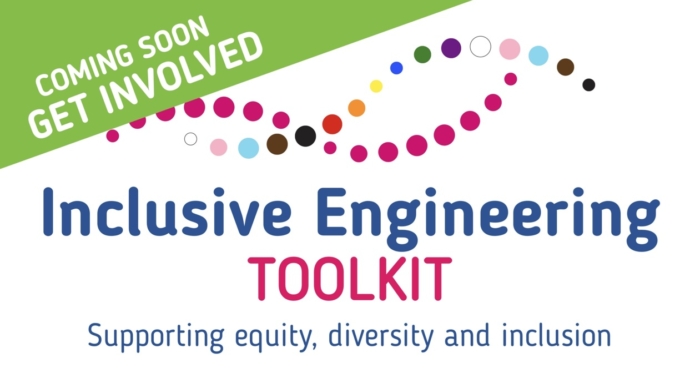 Theme: Graduate employability and recruitment, Research
Theme: Graduate employability and recruitment, Research
Author: Dr Salma .M.S. Al Arefi (University of Leeds)
Keywords: Science and Social Capitals, Sense of Belonging, Intersectionality, Student Success
Abstract: Being in a marginalised position due to feeling of otherness because of one’s gender as well as intersecting identity can create psychological hidden barriers. Coupled with science and social capitals such variables are key determines of student’s self-concept of engineering self-efficacy, competencies, and abilities. The impact of being othered may not only be limited to interest for participation in engineering but could extend beyond and significantly affect student engagement, success, and affiliation with engineering. This could impact students’ sense of belonging to their degree programme, university, and discipline, leading to adverse impacts ranging from low engagement to low attainment, or discontinuations. Such experiences can be greatly exacerbated for students with intersecting identities (‘double, triple, jeopardy’), e.g., a female student who identifies as a first-generation, working-class, disabled, commuter, carer, neurodiverse or mature student. This report presents work on progress on a student-centred interventional case study on exploring the impact of the intersectional lived experiences of underrepresented, disadvantaged and minoritised student groups in engineering beyond obvious gender and pre-university qualifications characteristics.
1. Problem Statement
Initiatives on closing the technical skills gap remain limited to access to either engineering education or the workplace. Identifying and supporting students facing barriers to continuation can be key to enhancing student success in a way that bridges the gap between the ignition of interest and transition to the engineering industry. Early but sustained engagement throughout the life cycle of an engineering student is however vital to cultivate students’ sense of belonging to their modules, degree programmes and the wider industry. That would in turn support the formation of their engineering identity.
Gendered identity, as well as pre-university qualifications, are yet perceived to exert the strongest force for marginalisation and underrepresentation in engineering education and the workplace. The impact intersecting identities can have in relation to ignition of interest, participation, as well as the formation of engineering identity, also need consideration. Along with gender, characteristics such as race, class, age, or language can have an added impact on already minoritized individuals (the ‘double, triple, quadrant…. jeopardy’), whereby the experience of exclusion and otherness can be exacerbated by overlapping marginalised identities. Coupled with the self-concept of own science capital, efficacies, and competencies [1-2], the formation of engineering identity could be expressed as a direct function of a sense of inclusion or otherwise exclusion [3]. Within this context, such an inherent feeling of connectedness describes the extent to which the lived experience of individuals is acknowledged valued and included [4], which is a healthy fertilizer for the formation of engineering identity. Perceived threats to one’s belonging due to a feeling of exclusion or rejection could on the contrary negatively impact one’s perception of self-efficacy and hence affiliation with engineering.
2. Project Aims
The role of effect in learning to foster a sense of belonging and enhance a coherent sense of self and form the engineering identity has attracted growing pedagogical research interest. In academia, a sense of belonging has been shown to excrete the largest force on one’s intent to participate in engineering and to be the key sustainable vehicle for successful progressions. Because engineering learning activities are pursued in complex social interactions, acknowledging, and understanding the role of belonging in academic success is key to fostering an inclusive culture that encourages and recognises contributions from all. It is hoped that the project outcomes can advise on understanding to support underrepresented, marginalised and minoritised students overcome self-perceived psychological barriers to their degree programme, university, or engineering workplace. The intersectional lens of the project is aimed to uncover key culprits that impact engineering identity formation for traditionally underrepresented, disadvantaged and minoritised students beyond obvious gender and pre-university education characteristics.
Outcomes will role model fostering an inclusive culture where engineering students from all backgrounds feel that they belong in an effort to support engineering higher education institutions to adhere to the changes introduced by the Engineering Council to the U.K. Standards for Professional Engineering Competency and Commitment around recognising inclusivity and diversity. This should be applicable to other STEM-related disciplines.
3. Decolonial partnership
The project centres on students’ voices through a decolonial participation approach that acknowledges participants as co-researchers and enables them to take an active role in the co-creation of the project deliverables. Participation will be incentivised through recognition (authorship, certifications) as well as financial incentives. The use of evidence-based active listening to enable students to share their lived experiences of belonging through storytelling and story sharing is hoped to create a safe space to empower and acknowledge student voices so that every student feel that they matter to their degree programme, university, and discipline. That in turn would cultivate authentic learner identity and a sense of belonging.
4. Outcomes and future work
The findings are hoped to advise on a sustainable support approach whereby early and sustained engagement (throughout the student lifecycle from access to continuation, attainment, and progression) are prioritised to facilitate the transition of students into and from Engineering. Co-created artefacts from the project will be used to support access and continuation by providing examples of lived experiences for prospective students to associate with. Fostering a sense of belonging is hoped to have a direct impact on learner engagement, success, and attainment as well as enhancing students’ ability to progress towards achieving their unique goals beyond their degree.
The second phase of the 2-year project will involve student recruitment and selection, interventional listening, storytelling-based approaches and co-creation of artefacts.
Acknowledgement
The work is carried out as part of the fellowship of the Leeds Institute for Teaching Excellence in partnership with Dr Kendi Guantai, from Leeds Business School, Marketing Division and Dr Nadine Cavigioli Lifelong Learning Centre at the University of Leeds.
References
- H. M. Watt, “The role of motivation in gendered educational and occupational trajectories related to maths,” Educational Research and Evaluation, vol. 12, no. 4, pp. 305-322, 2006.
- F. Pajares, Gender differences in mathematics self-efficacy beliefs. Cambridge University Press, 2005.
- M. Ong, C. Wright, L. Espinosa, and G. Orfield, “Inside the double bind: A synthesis of empirical research on undergraduate and graduate women of color in science, technology, engineering, and mathematics,” Harvard Educational Review, vol. 81, no. 2, pp. 172-209, 2011.
- T.L. Strayhorn, 2018. College students’ sense of belonging: A key to educational success for all students. Routledge.
Any views, thoughts, and opinions expressed herein are solely that of the author(s) and do not necessarily reflect the views, opinions, policies, or position of the Engineering Professors’ Council or the Toolkit sponsors and supporters.




